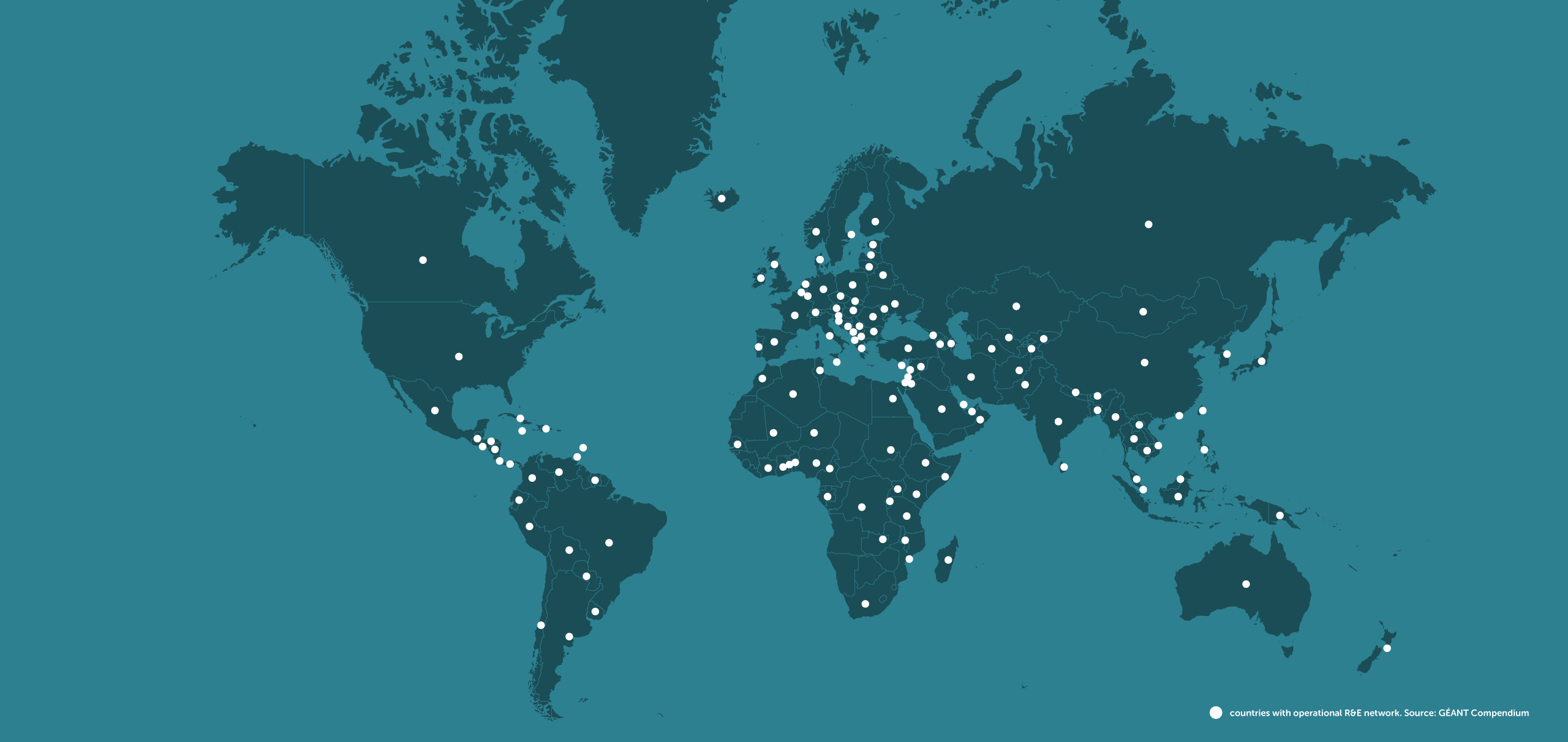This portal sets out to be a ‘one-stop shop’ for NRENs seeking information, materials, arguments and tools for persuading key stakeholders about their raison d’être, value and role and for making the case for R&E networking in general.
About R&E networks
The primary focus of all regional and national research and education (R&E) network organisations (also known as RRENs and NRENs) is to provide reliable, high-capacity, high-speed network connectivity and services to universities and research institutions in their countries.
Many R&E networks go beyond this by also connecting vocational education providers and schools, as well as libraries and museums.
R&E networks offer national backbones and international connectivity at speeds and capacities well beyond typical commercial networks, in order to support today’s data intensive research and to provide a powerful testbed for new applications and services.
In many countries, the typical core capacity is now 10 Gigabits per second (Gbps), though some have reached 100 Gbps. Some R&E networks deploy several paths in their backbone, effectively increasing the capacity even further.
R&E networks experiment with new technologies and push the capabilities of existing technologies in order to meet the needs of research and education.
There are more than 125 R&E networks in the world, working together in a collegiate way as a global ‘network of networks’, enabling borderless collaboration and driving discovery and innovation.

Learn more about why R&E networks exist:
The value of R&E networks
Many R&E networks are recognised as pools of independent expertise within their countries and are frequently called upon to provide guidance on the development of national and international policy on education, research and IT…
Stories on this blog
Advanced ICT is the core of the global network of R&E networks, but these critical networks are made up of more than fibre, routers and switches. This blog brings together networks, users and beneficiaries to showcase inspiring stories about people and projects making a difference.
